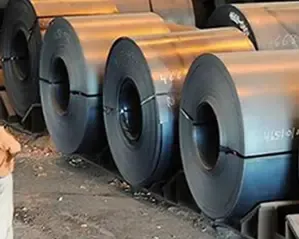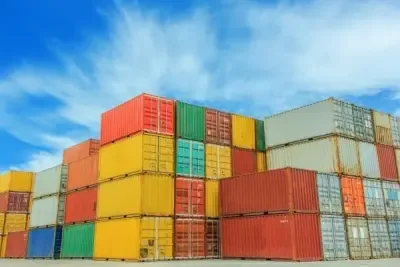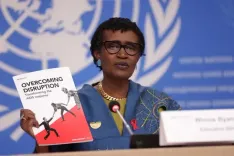South Korean Steel Producers to Collaborate with Government on U.S. Tariffs

Synopsis
Key Takeaways
- South Korean steelmakers are collaborating with the government.
- 25% tariffs on steel and aluminum imports begin March 12.
- POSCO is considering building a U.S. steel plant.
- Hyundai Steel warns of long-term negative impacts.
- South Korea was the fourth-largest steel exporter to the U.S. in 2022.
Seoul, March 7 (NationPress) South Korean steel manufacturers announced on Friday their commitment to collaborate closely with the government and relevant agencies to mitigate the consequences of impending U.S. tariffs on all steel and aluminum imports set to take effect next week.
President Donald Trump has outlined a series of tariffs targeting various trading partners, including Canada and Mexico, since his inauguration in January, as reported by Yonhap news agency.
The tariffs include a 25 percent tax on steel and aluminum imports starting March 12 (U.S. time). In late February, South Korean officials sought an exemption from these tariffs during discussions in Washington, but their efforts did not yield results.
Seoul's reactions to the Trump administration's latest tariff initiatives have been influenced by political unrest stemming from President Yoon Suk Yeol's brief declaration of martial law in December.
POSCO and Hyundai Steel Co., the nation’s two largest steel producers, stated they will engage in discussions with the government, the Korea Iron & Steel Association (KISA), and other relevant entities to address the forthcoming tariffs.
A POSCO representative mentioned over the phone, “We are exploring various options, including the possibility of establishing a steel manufacturing facility in the United States as a response to the tariffs.”
No further details were provided regarding the steel mill plans or other alternatives.
Hyundai Steel expressed concerns that the U.S. implementation of extensive tariffs on steel imports could have a long-term detrimental effect on the steel sector, according to a company spokesperson.
Under the South Korea-U.S. free trade agreement, nearly all tariffs between the two nations have been eliminated.
During his initial term, Trump enacted a 25 percent tariff on all steel imports to the U.S. in 2018, citing national security justifications.
At that time, the U.S. exempted South Korean steel products from the tariffs in exchange for a yearly import quota of 2.63 million tons, which represented approximately 70 percent of Seoul's average export volume from 2015 to 2017.
Last year, South Korea ranked as the fourth-largest steel exporter to the U.S., constituting about 11 percent of Washington's steel imports, according to data from the U.S. International Trade Administration.
The nation also stood as the fourth-largest aluminum exporter to the U.S., accounting for roughly 4 percent of U.S. aluminum imports.
Meanwhile, Trump has postponed tariffs on Mexican and Canadian goods covered under a trade agreement among the three nations until April 2.
Earlier last month, Trump announced tariffs on Canada and Mexico, emphasizing the necessity to curb the inflow of undocumented immigrants and illegal drugs into the U.S.
He subsequently agreed to a one-month delay as the U.S.' two primary trading partners promised to enhance their efforts against drug trafficking. The tariffs were implemented Tuesday following the conclusion of the pause.









